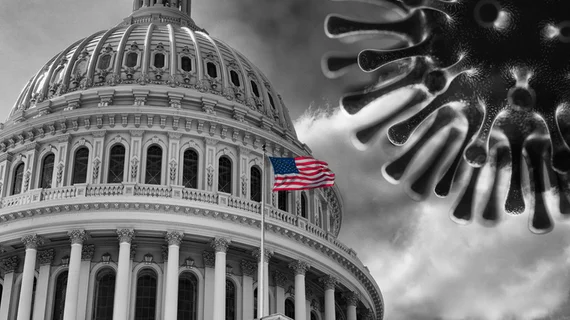Imaging advocates support new $25B congressional bill to help prop-up scientific research
A handful of leading imaging groups on Tuesday came out in support of a new congressional bill that would infuse billions of dollars into federal research, including healthcare, that was wiped away during the ongoing pandemic.
Five organizations including the Society of Nuclear Medicine & Molecular Imaging and Center for Diagnostic Imaging, said they are “deeply concerned” about COVID-19’s disruption to U.S. research efforts.
In a March 23 letter addressed to lawmakers, the advocates endorsed the Research Investment to Spark the Economy (RISE) Act, which was recently introduced into the House by Reps. Diana DeGette (D-Colo.) and Fred Upton (R-Mich.). The RISE Act earmarks nearly $25 billion for national research agencies, including the Department of Health and Human Services, Environmental Protection Agency, and others.
“As is the case in the overall economy, researchers, students, post-docs, and lab personnel have had their work interrupted due to COVID-19,” the letter writers noted. “This has implications not only for the research workforce—where hiring has been disrupted and employees furloughed—but also on the process of scientific discovery and, ultimately, improved human health.”
Also on Tuesday, SNMMI said it is working with the Academy for Radiology and Biomedical Research to move forward with appropriations recommendations for the 2022 Fiscal Year. Most importantly, the nuclear medicine group supports lobbying Congress to provide $46.1 billion for the National Institutes of Health. That figure amounts to a $3.2 billion increase in the federal health organization’s budget which is necessary to keep pace with the biomedical research and development price index, SNMMI said in a statement.
The Medical Imaging & Technology Alliance, the American Society of Radiologic Technologists, and the Association for Quality Imaging all signed the March 23 letter to lawmakers. Read it in full here.

